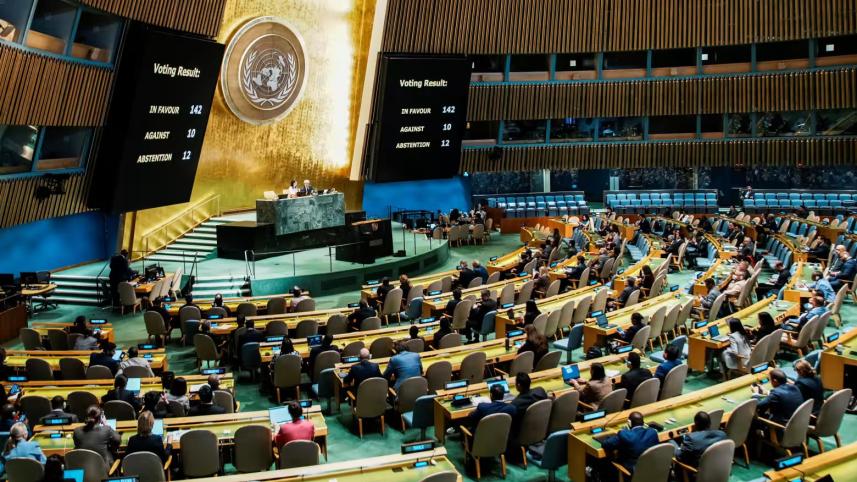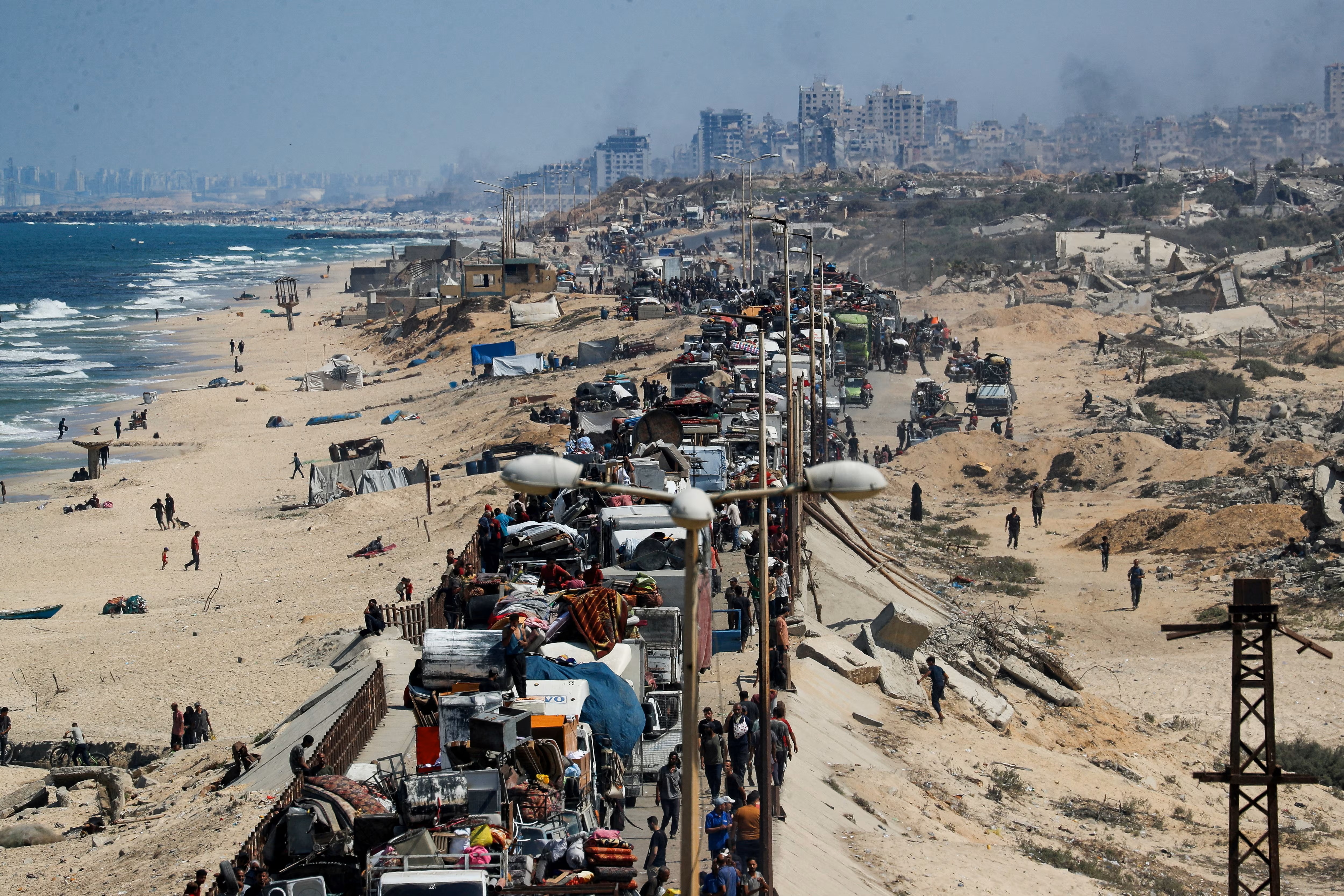At 80, and in an increasingly divided world, the UN is fighting for relevance

Amid the furore over Charlie Kirk's assassination, Russia's threatening drones in Poland, and Israel's now-confirmed genocide in Gaza and aggression against its neighbours, is it worth marking the United Nations' 80th anniversary? Counterintuitively, this may be precisely the right moment. Calls for ceasefires and peaceful solutions to inter-state conflicts echo US calls for depolarisation and dialogue. The UN's failures to secure international peace and security mirror US domestic failures to nurture civilised dialogue and uphold full human rights for all. At best, the UN's 80th anniversary serves as a reminder of values beyond misplaced nationalism, tribal fidelity and wanton violence. The organisation should take pride in having outlasted the League of Nations—only 26 years—but also recognise that, as turning 80 is critical for individuals, this anniversary is critical for the UN's continuing relevance.
The UN's 80th anniversary has prompted efforts to revitalise the organisation. The UN80 Initiative, launched in early 2025, is less a triumphal celebration of reaching 80 than a serious attempt to overhaul an organisation seemingly in intensive care. Institutions, like individuals, require constant re-energising, and 80 is a pivotal moment. Officially, according to a March 2025 UN press release, "the UN80 Initiative builds on ongoing efforts, including the Pact for the Future and UN 2.0, which aim to update the UN's structures, priorities, and operations for the 21st century." The initiative "seeks to develop proposals in three key areas," Secretary-General António Guterres stated, "identifying efficiencies and improvements, reviewing the implementation of mandates from Member States, and a strategic review of deeper, more structural changes and programme realignment."
As with any enterprise, public or private, the UN's reworking begins with finances. The organisation faces a mounting liquidity crisis. "For at least the past seven years, the UN has faced a liquidity crisis because not all Member States pay in full, and many also do not pay on time," Guterres explained. As of March 11, 2025, the press release noted, "only 75 of the 193 Member States have paid their assessed contributions in full towards the $3.72 billion 2025 budget for the Organisation."
Short of funds and struggling to deliver on its primary function of securing peace and security in the Middle East and Ukraine, why should the UN not go the way of its short-lived predecessor, the League of Nations?
A premature announcement of the UN's death
Not everything about turning 80 is negative. In an interview, Georges Abi-Saab—eminent legal scholar, former professor and judge, and confidant of UN secretaries-general—offered three optimistic insights:
First, the UN remains the only universal forum for the collective will of the international community. "The United Nations is the only universal forum which can express and legitimise the collective will of the international community," Abi-Saab observed. For instance, the veto-bound Security Council (SC) nevertheless managed to condemn the recent strike on Qatar's capital, Doha—even if it did not mention Israel. All 15 SC members agreed. Workarounds to SC deadlock exist, Abi-Saab noted, citing the General Assembly's "Uniting for Peace" Resolution as described by Richard Falk in an interview with Daniel Falcone. Under that precedent, Israel has until September 18, 2025, to comply with the International Court of Justice's advisory opinion to withdraw from the occupied Palestinian territory, dismantle settlements and evacuate settlers. Should Israel fail to comply—as seems likely—the General Assembly could implement several measures based on historical precedent. It could, for example, deploy a UN peacekeeping or civilian protection force. The organisation currently deploys some 60,000 peacekeepers worldwide.
Second, the UN successes extend beyond peace and security. "Discussion of the United Nations' successes and failures should not be confined to peace and security," Abi-Saab emphasised. "Attention should also be given to its lateral, specialised agencies, such as those dealing with the environment." Recently, the World Trade Organization (WTO) celebrated the entry into force of a trade deal curbing subsidies for harmful fishing. At least two-thirds of member states had to ratify the deal for it to take effect—an important victory for environmental protection and multilateralism.(Abi-Saab is a former president of the WTO Appellate Body's Dispute Settlement Organ.)
Third, the resistance to anti-multilateralism exists. "There are signs of resistance to Donald Trump's anti-multilateralism—evidence of a coalition of the willing to counter him," Abi-Saab explained. He added that the Shanghai Cooperation Organisation (SCO) is not an alternative multilateral structure to the UN. China seeks smooth external state relations within the UN system while resisting domestic criticisms from bodies like the UN Human Rights Council. According to Abi-Saab, the SCO's goal is to create an alternative multilateral payment system outside the dollar, not to supplant the United Nations itself.
UN and US renewal?
Is the UN's inability to implement many of its guiding principles akin to failures within the United States itself? Where is the sense of community or common good—erga omnes—internationally and domestically? While renewed populism, nationalism and isolationism hamper international cooperation, the assassination of Charlie Kirk reflects a parallel lack of serious dialogue across the US political spectrum. The similarities between blocked international cooperation and US political polarisation are hard to miss. Negotiation and compromise are as essential between states as they are between individuals.
Speaking at Gettysburg, Pennsylvania, in 1863, following one of the American Civil War's bloodiest battles, President Abraham Lincoln envisioned US renewal. "Four score and seven years" after the country's founding, Lincoln referred to a "government of the people, by the people, for the people." The Preamble of the United Nations Charter begins, "We the Peoples of the United Nations." Lincoln emphasised people; the UN begins with people. If Lincoln could speak of "a new birth of freedom" some 80 years after the nation was "brought forth" by the Founding Fathers, the UN80 Initiative seeks a similar rebirth for the only universal intergovernmental organisation. When Lincoln declared that "the government…shall not perish from the earth," could the same be said of the United Nations? In only 57 countries and regions worldwide do people enjoy a life expectancy above 80. Will the UN achieve such longevity, as well as relevance, beyond its 80th year?
Daniel Warner is the author of An Ethic of Responsibility in International Relations (Lynne Rienner). He lives in Geneva.
This article was first published in counterpunch.org.
Views expressed in this article are the authors' own.
Follow The Daily Star Opinion on Facebook for the latest opinions, commentaries and analyses by experts and professionals. To contribute your article or letter to The Daily Star Opinion, see our guidelines for submission.



 For all latest news, follow The Daily Star's Google News channel.
For all latest news, follow The Daily Star's Google News channel. 


Comments